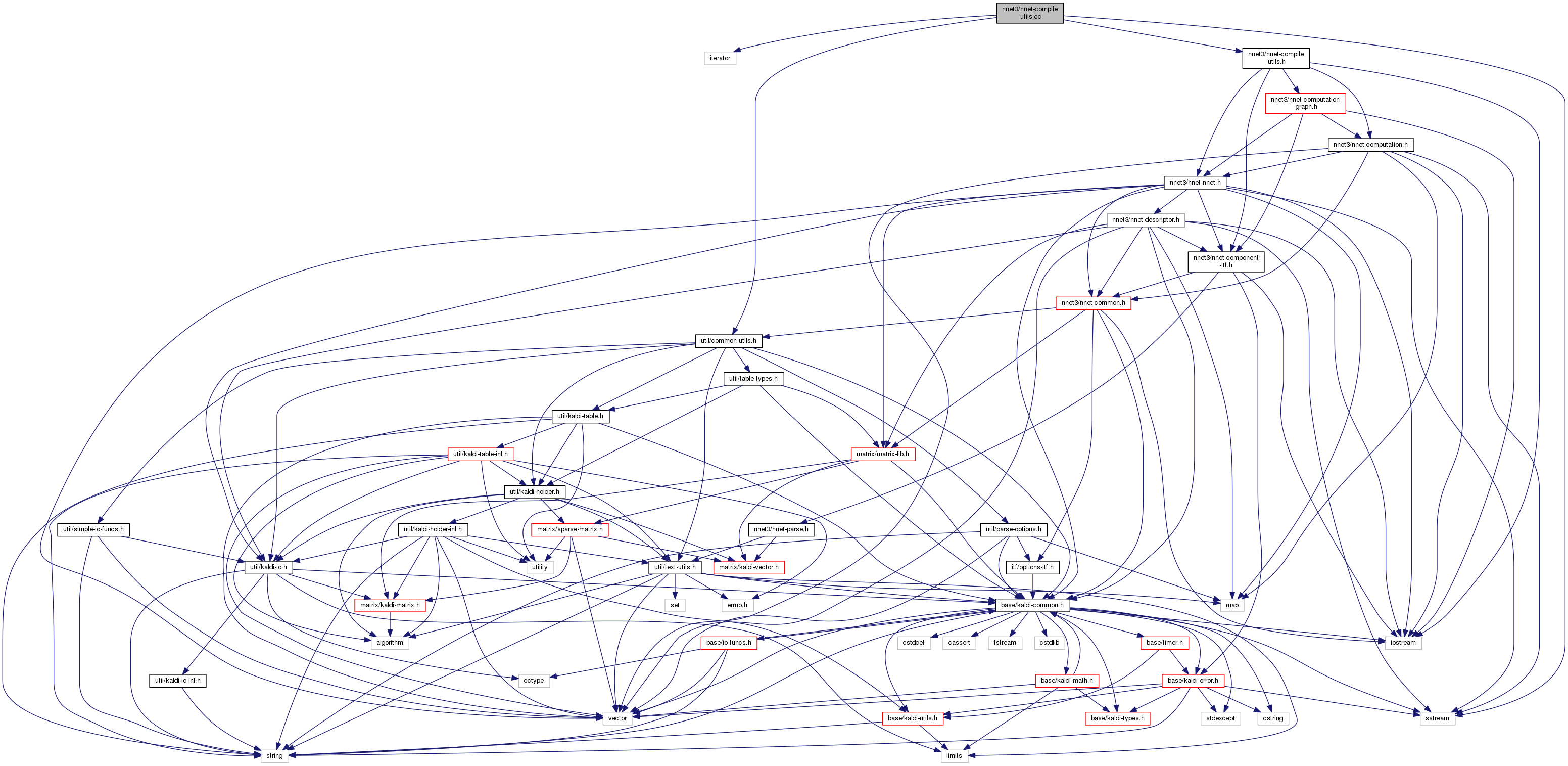|
| void | GetSubmatCounts (const std::vector< std::vector< std::pair< int32, int32 > > > &submat_lists, std::unordered_map< int32, int32 > *submat_counts, std::vector< int32 > *submats_with_large_counts) |
| | Gets counts of submatrices (the 1st members of pairs) in submat_lists. More...
|
| |
| void | SeparateSubmatsWithLargeCounts (const std::vector< int32 > &submats_to_separate, const std::vector< std::vector< std::pair< int32, int32 > > > &submat_lists, std::vector< std::vector< std::pair< int32, int32 > > > *reduced_submat_lists, std::vector< std::vector< std::pair< int32, int32 > > > *split_lists) |
| | This function, used in SplitLocations(), is used to make separate 'split lists' for certain high-count submatrix indexes, specified by the user in 'submats_to_separate'. More...
|
| |
| void | SplitLocations (const std::vector< std::vector< std::pair< int32, int32 > > > &submat_lists, std::vector< std::vector< std::pair< int32, int32 > > > *split_lists) |
| | The input to this function is a vector (indexed by matrix-row-index) of lists of pairs (submat_index, row_index), and this function splits it up into a list of vectors of pairs, where those vectors are indexed by matrix-row-index. More...
|
| |
| bool | ConvertToIndexes (const std::vector< std::pair< int32, int32 > > &location_vector, int32 *first_value, std::vector< int32 > *second_values) |
| | If it is the case for some i >= 0 that all the .first elements of "location_vector" are either i or -1, then output i to first_value and the .second elements into "second_values", and return true. More...
|
| |
| void | EnsureContiguousProperty (const std::vector< int32 > &indexes, std::vector< std::vector< int32 > > *indexes_out) |
| | This function takes a vector of indexes and splits it up into as separate vectors of the same size, as needed to ensure that the 'contiguous property' holds. More...
|
| |
| void | SplitPairList (std::vector< std::pair< int32, int32 > > &list, std::vector< std::vector< std::pair< int32, int32 > > > *split_lists) |
| | This function splits a vector of pairs into a list of vectors of pairs. More...
|
| |
| void | SplitLocationsBackward (const std::vector< std::vector< std::pair< int32, int32 > > > &submat_lists, std::vector< std::vector< std::pair< int32, int32 > > > *split_lists) |
| | This function has the same interface as SplitLocations(); however, it ensures certain additional properties of the output "split_lists", which are necessary because of the way it is used in backprop code. More...
|
| |
| bool | HasContiguousProperty (const std::vector< int32 > &indexes, std::vector< std::pair< int32, int32 > > *reverse_indexes) |
| | This function returns true if for each integer i != -1, all the indexes j at which indexes[j] == i are consecutive with no gaps (more formally: if j1 < j2 < j3 and indexes[j1] != -1 and indexes[j1] == indexes[j3], then indexes[j1] == indexes[j2]). More...
|
| |
| void | GetNxList (const std::vector< Index > &indexes, std::vector< std::pair< int32, int32 > > *pairs) |
| | This function outputs a unique, lexicographically sorted list of the pairs of (n, x) values that are encountered in the provided list of Indexes. More...
|
| |
| void | GetTList (const std::vector< Index > &indexes, std::vector< int32 > *t_values) |
| | This function outputs a sorted, unique list of the 't' values that are encountered in the provided list of Indexes If 't' values equal to kNoTime are encountered, they are ignored and are not output. More...
|
| |
